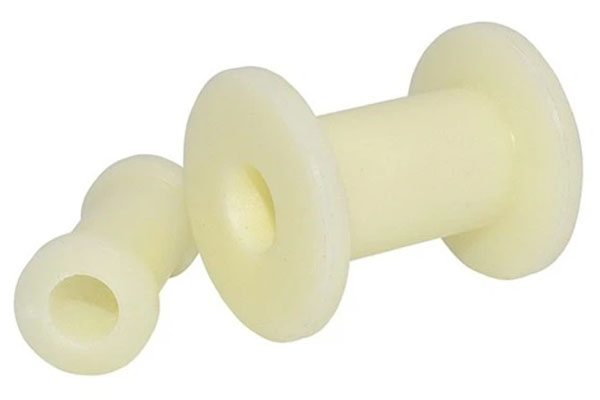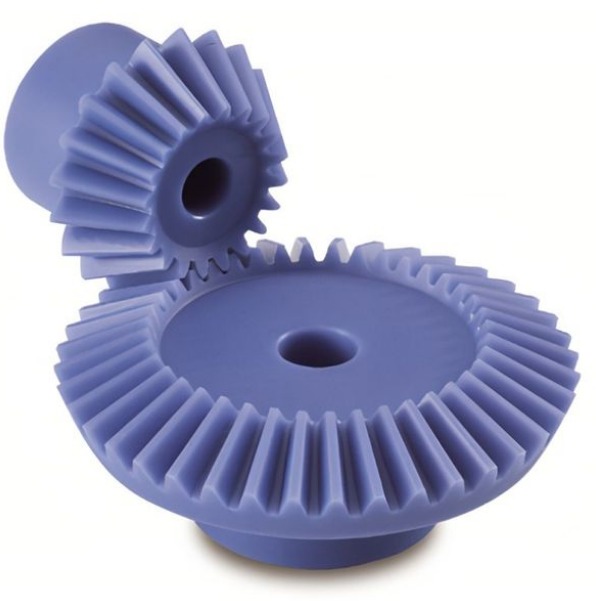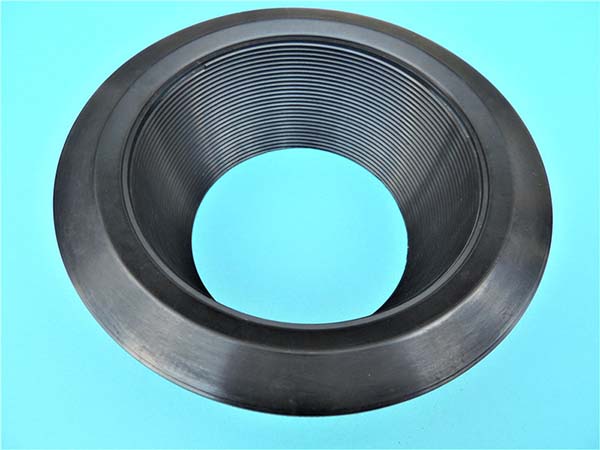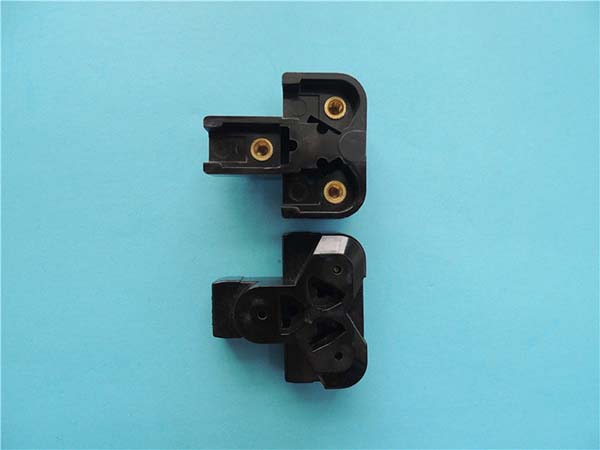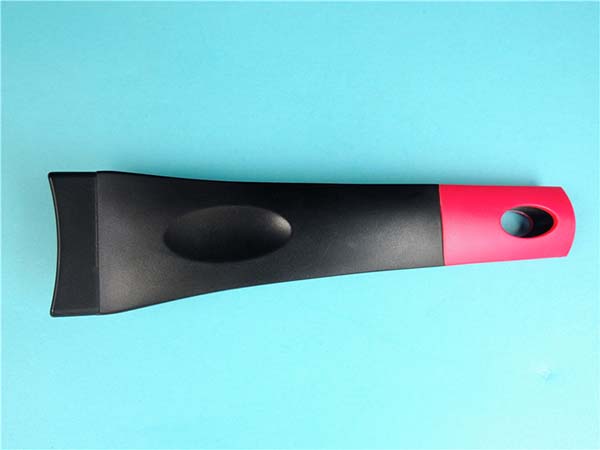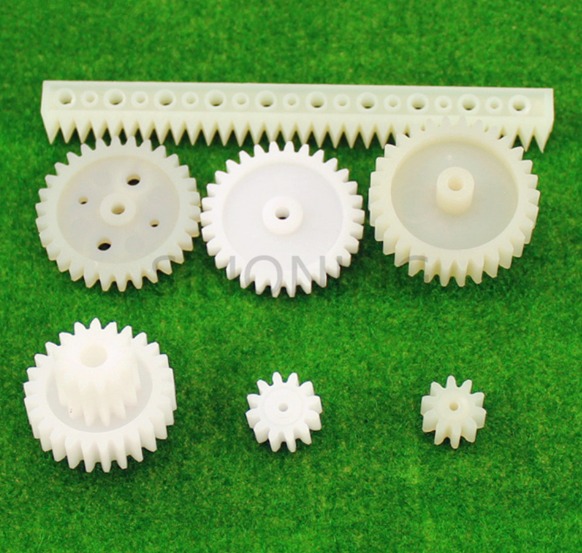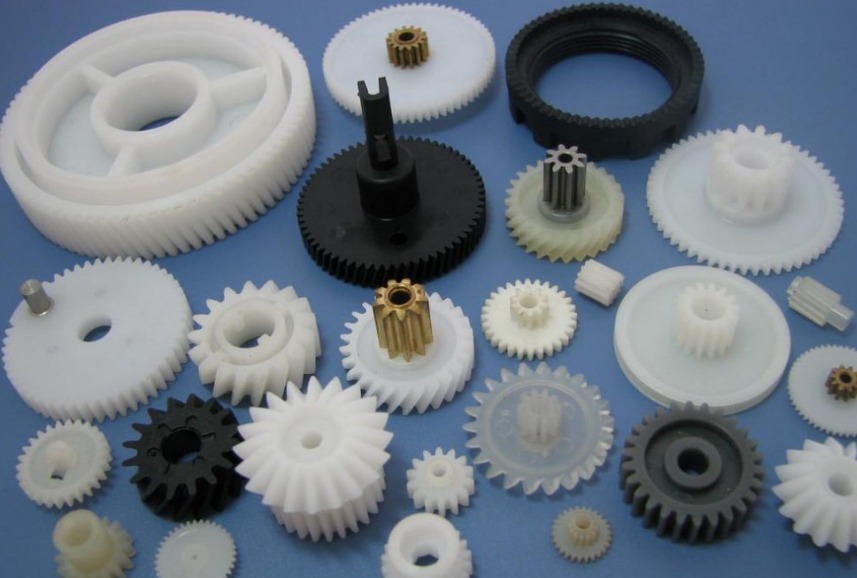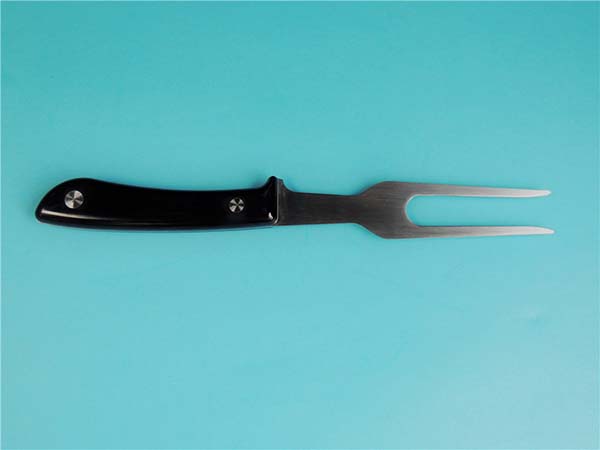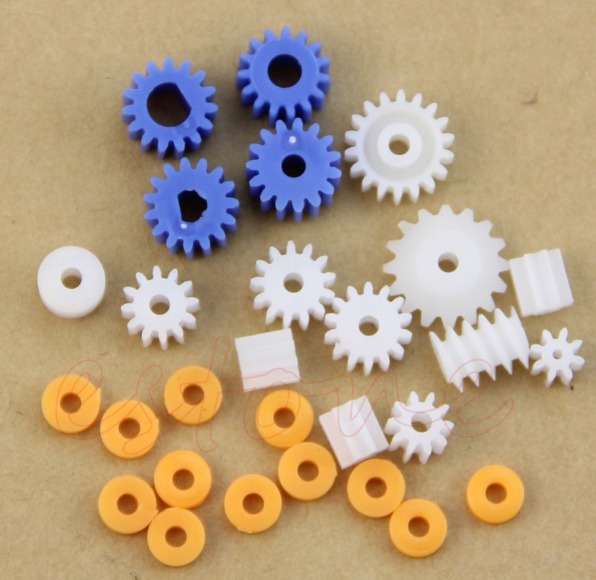Introduction
Nylon, a remarkable synthetic material, has woven its way into the fabric of modern life with an incredibly wide range of applications. Since its invention, nylon has become a staple in numerous industries, from fashion to aerospace, and from automotive to electronics. Its versatility lies in its unique combination of properties, making it a go - to material for engineers, designers, and manufacturers worldwide.
In the fashion industry, nylon is renowned for its use in sportswear. Its high strength - to - weight ratio means it can withstand rigorous physical activities while remaining lightweight, providing comfort to athletes. For Yigu Technology example, many running jackets are made of nylon due to its water - resistant and breathable properties, keeping runners dry and cool during their workouts.
In the automotive sector, nylon is used in various components. It can be found in engine parts, such as oil pans and intake manifolds, thanks to its heat resistance and dimensional stability. This not only reduces the weight of the vehicle but also improves fuel efficiency.
Given its widespread use, understanding the properties and applications of versatile nylon is crucial. In the following sections, we will delve deep into the specific properties that make nylon so versatile and explore in detail how it is applied in different industries. We will also compare different types of nylon and their characteristics through table - style comparisons and detailed data, aiming to provide you with a comprehensive guide to mastering the properties and applications of this amazing material.
Properties of Versatile Nylon
Mechanical Properties
Nylon is well - known for its outstanding mechanical properties. It has a high tensile strength, which means it can withstand a large amount of pulling force without breaking. For Yigu Technology example, nylon 6,6 has a tensile strength of around 80 - 90 MPa, while nylon 6 typically has a tensile strength in the range of 75 - 85 MPa. This high strength makes it suitable for applications such as parachute cords and high - strength ropes. In the case of parachutes, the nylon cords need to support the weight of a person and the forces generated during the descent, and its high tensile strength ensures safety.
Nylon also exhibits excellent wear resistance. In industrial applications like gears and bearings, nylon can significantly reduce friction and wear. Compared to some metal counterparts, nylon gears can operate more quietly and have a longer service life due to their self - lubricating properties. The following Yigu Technology table shows a comparison of the mechanical properties of some common nylons:
| Nylon Type | Tensile Strength (MPa) | Flexural Modulus (MPa) | Impact Strength (kJ/m²) |
| Nylon 6 | 75 - 85 | 2500 - 3000 | 50 - 80 |
| Nylon 6,6 | 80 - 90 | 2800 - 3500 | 40 - 60 |
| Nylon 11 | 45 - 55 | 1200 - 1800 | 80 - 120 |
Chemical Resistance
Nylon demonstrates good chemical resistance. It is highly resistant to fuels, oils, fats, and most technical solvents, such as aliphatic and aromatic hydrocarbons, chlorinated hydrocarbons, esters, ketones, and alcohols. This makes it an ideal material for applications in the chemical industry. For instance, nylon hoses are often used to transport various chemicals in factories. They can resist the corrosive effects of these chemicals, ensuring the safe and efficient transfer of substances.
However, it should be noted that nylon is attacked by strong mineral acids, acetic acid, and dissolved phenols. Some types of nylon can even be dissolved by formic acid. So, when choosing nylon for a particular application in a chemical - rich environment, it is crucial to consider the specific chemical substances involved.
Thermal Properties
In terms of thermal properties, nylon has a relatively good heat - resistance. Most nylons can be used for prolonged service at temperatures of 80 - 100°C. With heat - stabilized grades, this temperature can be increased to around 140°C. This makes it suitable for applications in automotive engines, where components need to withstand high - temperature environments.
On the other hand, nylon also has a certain degree of cold - resistance. It can maintain its mechanical properties to a certain extent at low temperatures, which is beneficial for applications in cold - storage facilities or outdoor equipment in cold regions. But its thermal expansion coefficient varies with temperature and moisture content, which may cause dimensional changes in some precision applications, and this factor needs to be taken into account during the design process.
Applications of Nylon
In the Textile Industry
Yigu Technology Nylon has found extensive applications in the textile industry. It is commonly used to make a wide variety of clothing items, including sportswear, swimwear, and outerwear. For instance, many athletes prefer nylon - made sportswear due to its lightweight nature. A nylon running shirt weighs significantly less than a cotton one of the same size, which reduces the burden on the body during exercise.
Nylon is also highly valued for its water - resistance. A nylon - based raincoat can effectively keep the wearer dry in wet weather. According to tests, a well - made nylon raincoat can withstand a rainfall of up to 100 mm/h without water penetration. In addition, its wear - resistance makes nylon - made socks last much longer than those made of some other materials. A pair of nylon - blended socks can endure over 50 washing cycles without significant wear and tear, while cotton - only socks may start to show signs of wear after 20 - 30 washes.
In the Automotive Industry
In the automotive industry, nylon plays a crucial role. It is used in the production of numerous automotive parts. One of the main applications is in engine components such as intake manifolds. Nylon intake manifolds can reduce the weight of the engine by up to 40% compared to traditional metal manifolds. This weight reduction not only improves fuel efficiency but also contributes to better overall vehicle performance.
Nylon is also used in the manufacturing of car interiors, like seat belts and interior trims. Seat belts made of nylon have high tensile strength, which can effectively restrain passengers during sudden decelerations. Tests show that nylon seat belts can withstand forces of up to 5000 N without breaking, ensuring the safety of vehicle occupants. The use of nylon in interior trims also helps to reduce the overall weight of the vehicle and provides a more aesthetically pleasing appearance.
In the Electronics Industry
Nylon is widely used in the electronics industry, especially in the production of electronic device housings. For Yigu Technology example, many mobile phone cases and laptop covers are made of nylon - based materials. The reason for choosing nylon is its excellent combination of properties. It has good electrical insulation properties, which can prevent electrical leakage and short - circuits. In addition, nylon is relatively lightweight, which is important for portable electronic devices. A nylon - made mobile phone case is about 30% lighter than an aluminum - alloy case of the same size.
Moreover, nylon can be easily molded into various shapes, allowing for the production of complex - shaped device housings. This flexibility in design enables manufacturers to create unique and stylish products that meet the aesthetic and functional requirements of consumers.
Tips for Mastering Nylon's Properties and Applications
Material Selection
When choosing nylon for a specific application, it is crucial to consider the different types of nylon and their properties. For high - strength applications, nylon 6,6 may be the best choice due to its higher tensile strength. If you need a more flexible and impact - resistant material, nylon 11 could be a better option. Consider the environmental factors as well. In a chemical - rich environment, make sure the nylon you choose has good chemical resistance to the specific chemicals involved.
Design Considerations
In the design phase, take into account nylon's thermal expansion coefficient. If the application requires high - dimensional accuracy, you may need to use heat - stabilized grades of nylon or design the product in a way that compensates for the dimensional changes caused by temperature and moisture. For example, in the design of electronic device housings, leaving some tolerance in the size can prevent problems caused by the expansion and contraction of nylon.
Processing Techniques
The processing techniques used for nylon can also affect its final properties. Injection molding is a common method for manufacturing nylon parts. However, the temperature, pressure, and cooling rate during injection molding can influence the crystallinity and mechanical properties of the final product. For instance, a slower cooling rate can lead to larger crystal sizes, which may affect the strength and toughness of the nylon part. So, it is important to optimize the processing parameters according to the specific requirements of the product.
Surface Treatment
Surface treatment can enhance the performance of nylon in certain applications. For Yigu Technology example, in the textile industry, a water - repellent treatment can be applied to nylon fabrics to improve their waterproofing ability. In the automotive industry, a coating can be added to nylon parts to increase their wear resistance or corrosion resistance. Different surface treatment methods, such as chemical coating, plasma treatment, and physical vapor deposition, can be selected based on the specific needs of the application.
FAQs
What are the main differences between different types of nylon?
The main differences lie in their mechanical, chemical, and thermal properties. For example, nylon 6,6 has higher tensile strength and better heat resistance compared to nylon 6, which makes it more suitable for high - stress applications. Nylon 11, on the other hand, has excellent impact resistance and lower melting point, making it ideal for applications where flexibility and easy processing are required. In terms of chemical resistance, some nylons may be more resistant to certain chemicals than others.
How can we improve the heat resistance of nylon?
One way is to add heat - stabilizers during the manufacturing process. These stabilizers can prevent the degradation of nylon at high temperatures. Another method is to use fillers such as glass fiber. Glass - fiber - reinforced nylon can significantly increase its heat - deflection temperature. Additionally, selecting high - heat - resistant grades of nylon from the start, like nylon 46 or nylon 6T, which have inherently higher melting points and heat - resistance properties, can also be a good solution.
In which industries is nylon most commonly used?
Nylon is most commonly used in the textile, automotive, and electronics industries. In the textile industry, it is used for making clothing, especially sportswear and outerwear, due to its lightweight, water - resistant, and wear - resistant properties. In the automotive industry, it is applied in engine components, interior parts, and seat belts for its heat resistance, high strength, and weight - reducing characteristics. In the electronics industry, nylon is used in device housings for its electrical insulation, lightweight, and easy - molding properties.
